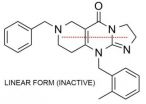(Press-News.org) Women diagnosed with diabetes before or during pregnancy are less likely to initiate and continue breastfeeding their newborns than women without diabetes, a new study suggests. Led by clinician-scientists in The Research Institute at Nationwide Children's Hospital and collaborating institutions, the findings point to areas for improved prenatal and postnatal education of women with diabetes.
The study, published in the May issue of the journal Public Health Nutrition, analyzed data from the 2009-2011 Pregnancy Risk Assessment Monitoring System (PRAMS), which is administered by the Centers for Disease Control and Prevention. Out of nearly 73,000 women included in the sample, 8.8 percent had diabetes during pregnancy, called gestational diabetes, and 1.7 percent had diabetes prior to pregnancy.
"Infants born to women with diabetes during pregnancy are more likely to experience adverse outcomes such as hypoglycemia immediately after delivery. In the longer-term, these children are more likely to be obese and/or develop type 2 diabetes," said Reena Oza-Frank, PhD, RD, principal investigator in the Center for Perinatal Research in The Research Institute. "Breastfeeding can help reduce these risks."
The researchers matched women based on 16 factors, including age, income and ethnicity, to make sure that the differences they saw in breastfeeding initiation and continuation could be attributed to diabetes status. According to the study, women with gestational diabetes and women without diabetes were equally likely to initiate breastfeeding, but gestational diabetes sufferers were less likely to continue for at least two months. Women with pre-pregnancy diabetes were less likely to initiate than both other groups of women, but continued breastfeeding at about the same rate as women with gestational diabetes.
"We found that women with pre-pregnancy diabetes had the lowest breastfeeding initiation and continuation rates. However, women with gestational diabetes also had low continuation rates," Dr. Oza-Frank said. "This study indicates that women with pre-pregnancy diabetes need additional support both initiating and continuing breastfeeding, and women with gestational diabetes need additional support continuing breastfeeding."
About 30 percent of women with pre-pregnancy diabetes cited illness or their use of medication as the top reasons they didn't breastfeed, which researchers said suggests that the disease and its related medications directly impacted women's decisions. Other factors influencing their breastfeeding decisions were similar between women with diabetes and healthy women, such as not wanting to breastfeed and not feeling as if they supplied enough milk for their babies. These topics could easily be addressed by prenatal educators or lactation consultants, Dr. Oza-Frank suggested.
"Women with pre-pregnancy diabetes and women who develop gestational diabetes should get additional prenatal education on the increased risks their infants may experience and how breastfeeding can help reduce those risks," said Dr. Oza-Frank, who also is a research assistant professor in the Department of Pediatrics at The Ohio State University College of Medicine. "Breastfeeding intention is often the strongest predictor of breastfeeding initiation, and by establishing intent early in pregnancy, successful initiation is more likely. Lactation consultants are an excellent resource and support for breastfeeding moms both immediately after delivery and beyond."
Pre-pregnancy diabetes and gestational diabetes can negatively impact the health of both the mother and infant, so protective behaviors such as breastfeeding could reduce certain health risks, Dr. Oza-Frank explained. But the differences between women with diabetes prior to pregnancy and those who develop gestational diabetes could impact the approach health educators take in addressing breastfeeding, she added. Continuing to study their experiences as separate populations could provide valuable information for improving breastfeeding initiation and continuation among both groups.
Dr. Oza-Frank and her colleagues plan to continue studying women in both diabetes groups by examining exclusive breastfeeding rates through six months, breastfeeding patterns through the first year of life, introduction of bottle-feeding and timing of introduction to solid foods in these populations.
INFORMATION: END
Breastfeeding initiation and success is impacted by diabetes status of mother
2014-05-19
ELSE PRESS RELEASES FROM THIS DATE:
Research finds few seizing patients receive EEGs in emergency department
2014-05-19
CINCINNATI—Even though it could impact their admission or care in the hospital, few seizing patients receive a diagnostic electroencephalogram, or EEG, in the emergency department, says a new study presented this week by University of Cincinnati researchers.
The research team, led by assistant professor of emergency medicine and neurosurgery William Knight, MD, looked at the use of EEGs to diagnose status epilepticus, a life-threatening condition in which the brain is in a state of persistent seizure for more than five minutes.
Status epilepticus affects more than 100,000 ...
New research shows humans have more impact on tropical nitrogen levels
2014-05-19
MISSOULA – A new paper co-written by four University of Montana researchers finds that humans have more than doubled tropical nitrogen inputs.
Benjamin Sullivan, a researcher working with UM College of Forestry and Conservation Professor Cory Cleveland, led the team that looked at the nitrogen cycle in tropical rain forests. Sullivan and his colleagues used a new method to demonstrate that biological nitrogen fixation in tropical rain forests may be less than a quarter of previous estimates.
Nitrogen is an essential nutrient for plant and animal life. It's required in ...
Scripps Research Institute chemists discover structure of cancer drug candidate
2014-05-19
LA JOLLA, CA – May 19, 2014 – Chemists at The Scripps Research Institute (TSRI) have determined the correct structure of a highly promising anticancer compound approved by the U.S. Food and Drug Administration (FDA) for clinical trials in cancer patients.
The new report, published this week by the international chemistry journal Angewandte Chemie, focuses on a compound called TIC10.
In the new study, the TSRI scientists show that TIC10's structure differs subtly from a version published by another group last year, and that the previous structure associated with TIC10 ...
Weight bias plagues US elections
2014-05-19
EAST LANSING, Mich. --- Overweight political candidates tend to receive fewer votes than their thinner opponents, finds a new study co-authored by a Michigan State University weight bias expert.
While past research has found weight discrimination in schools, businesses, entertainment and other facets of American society, this is the first scientific investigation into whether that bias extends to election outcomes, said Mark Roehling, professor of human resources.
"We found weight had a significant effect on voting behavior," Roehling said. "Additionally, the greater ...
Favoritism, not hostility, causes most discrimination, says UW psychology professor
2014-05-19
Most discrimination in the U.S. is not caused by intention to harm people different from us, but by ordinary favoritism directed at helping people similar to us, according to a theoretical review published online in American Psychologist.
"We can produce discrimination without having any intent to discriminate or any dislike for those who end up being disadvantaged by our behavior," said University of Washington psychologist Tony Greenwald, who co-authored the review with Thomas Pettigrew of the University of California, Santa Cruz.
Greenwald and Pettigrew reviewed ...
UT Dallas study sheds light on how infants understand speech
2014-05-19
A new study from a UT Dallas researcher demonstrates the importance of considering developmental differences when creating programs for cochlear implants in infants.
Dr. Andrea Warner-Czyz, assistant professor in the School of Behavioral and Brain Sciences, recently published the research in the Journal of the Acoustical Society of America.
"This is the first study to show that infants process degraded speech that simulates a cochlear implant differently than older children and adults, which begs for new signal processing strategies to optimize the sound delivered to ...
Brain steroids make good dads
2014-05-19
Testosterone in males is generally associated with aggression and definitely not with good parenting. Insights from a highly social fish can help understand how other androgenic steroids, like testosterone, can shape a male's parenting skills, according to a recent Georgia State University research study.
Once bluebanded gobies become fathers, they stay close to the developing eggs, vigorously fan and rub them until they hatch, and also protect them from mothers who would eat them. By injecting a series of chemicals into the brains of these fathers, the research team ...
Better science for better fisheries management
2014-05-19
Jon Grabowski, a marine science and fisheries expert at Northeastern University's Marine Science Center in Nahant, Massachusetts, has been working with other fisheries scientists as well as economists, social scientists, and policy makers to determine the best strategies for dealing with all of the Northeast region's fisheries that impact habitat, which includes cod, haddock, cusk, scallops, clams and other fish that live near the sea floor and are of significant socioeconomic value to the region.
In research published online last month in the journal Reviews in Fisheries ...
Predicting which stroke patients will be helped -- or harmed -- by clot-busting treatment
2014-05-19
Johns Hopkins researchers say they have developed a technique that can predict — with 95 percent accuracy — which stroke victims will benefit from intravenous, clot-busting drugs and which will suffer dangerous and potentially lethal bleeding in the brain.
Reporting online May 15 in the journal Stroke, the Johns Hopkins team says these predictions were made possible by applying a new method they developed that uses standard magnetic resonance imaging (MRI) scans to measures damage to the blood-brain barrier that protects the brain from drug exposure.
If further tests ...
Studies find existing and experimental drugs active against MERS-coronavirus
2014-05-19
A series of research articles published ahead of print in the journal Antimicrobial Agents and Chemotherapy have identified a number of existing pharmaceutical drugs and compounds under development that may offer effective therapies against Middle East Respiratory Syndrome (MERS).
In the first study, researchers screened a library of 290 pharmaceutical drugs, either FDA-approved or in advanced clinical development for antiviral activity against the MERS coronavirus (MERS-CoV) and severe acute respiratory syndrome coronavirus (SARS-CoV) in cell culture. They found 27 ...



